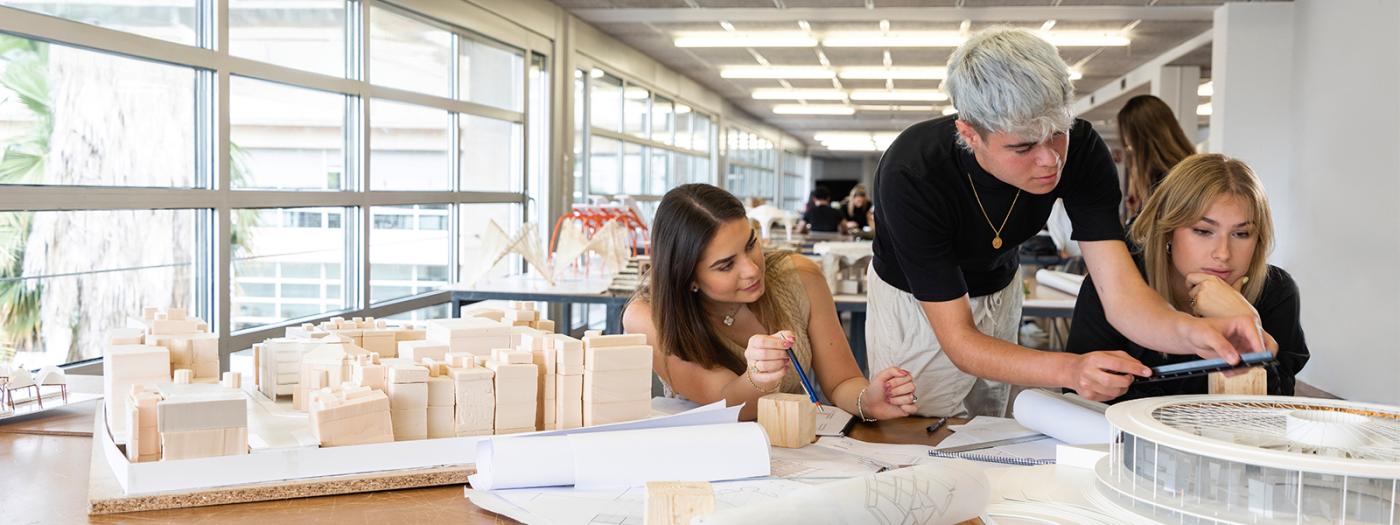CODE: YY026
LANGUAGE: English - Catalan - Spanish
Titular Professors
Professors
This course introduces students to the design process, placing special emphasis on constructive principles. It delves into the parameters that define the tectonic design, relating them to the processes and agents involved in construction.
The course content is structured into two units, which are developed in an interrelated manner throughout the sessions. The tectonic design serves as a guiding thread and methodology to introduce students to the understanding of the construction process and the agents involved.
CONSTRUCTION PROCESS AND AGENTS OF THE CONSTRUCTION PROCESS
Identification and description of the agents involved in the construction process. Application to the design. Construction scenarios. Different building products. Uses. Property ownership. Private developer. Public developer.
TECTONIC DESIGN
The design is based on constructive principles. Meaning and scope of the tectonic concept. Identification of essential tectonic elements in architecture. Tectonics understood as the architectural field that explores the expressive capacity of construction and materials. The tectonic design understood as the result of the intersection between construction and design.
The methodology of this course is based on project-based learning and is essentially practical, through the manipulation of materials and construction. The tectonic design and its subsequent execution constitute the methodological framework that will allow the student to progressively and practically engage with the construction process, as well as to deepen their understanding of the agents involved.
The course is structured around various projects developed throughout the semester. Content is presented according to the specific needs of each project, and the final outcome will always be an object or a physical construction. The course culminates in the creation of a full-scale (1 to 1) construction, designed for individual use and coherent with the proposed constructive and material logic.
All exercises will begin with an introductory session and conclude with a review and a critical discussion of the results obtained. The development of the projects will take place in the classroom and/or workshop, complemented by independent work outside class hours.
1- Practical work and exercises: completion and submission of projects, models, and assigned exercises throughout the course.
2- Participation and engagement in class: active attendance, involvement in classroom dynamics, work during class and in workshop, and contributions to group sessions.
3- Weekly reviews of works and activities: presentation and correction of projects and activities, with ongoing feedback from the teaching staff.
4- Public presentations of partial and final results.
5- Final presentation before a jury with an overall evaluation of the process and the outcomes achieved.
The design exercises grades will be the result of a continuous assessment of the student's work by their professor. In addition to the result, the grade considers also progression, participation, preparation and perseverance in the work. A minimum attendance of 80% will be required to pass the subject on this convocation.
